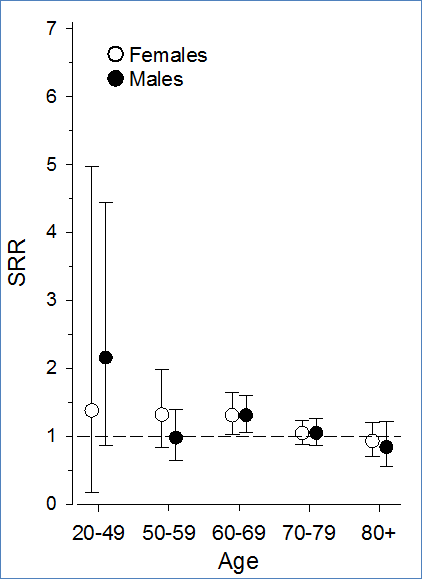Session Information
Session Type: Abstract Submissions (ACR)
Background/Purpose: Rheumatoid arthritis (RA) is a chronic inflammatory disease associated with increased cardiovascular morbidity. Evidence suggests that RA patients are at an increased risk of coronary heart disease (CHD) early in the disease process. Whether the risk of CHD is elevated before the onset of RA symptoms remains to be ascertained. The aim of the study was to assess the prevalence of CHD, chronic hypertension and chronic congestive heart failure among incident RA patients at the time of diagnosis in comparison to age- and sex-matched non-RA-subjects. Furthermore, the impact of age at the onset of RA as well as sex and the presence of rheumatoid factor (RF) on the risk of cardiovascular diseases was evaluated.
Methods: A cohort of 7,209 incident RA patients diagnosed between January 2004 and December 2007 was identified from a Finnish nationwide register of special reimbursements for medication costs. The presence of cardiovascular diseases antedating the reimbursement decision for RA was identified from the same register. The prevalence of cardiovascular comorbidities at RA diagnosis was compared to the general Finnish population, and a standardized rate ratio (SRR) for each cardiovascular disease was calculated.
Results: The risk of having CHD at RA diagnosis was slightly elevated, the SRR being 1.10 (95% confidence interval [CI]: 1.01–1.20). Patients who were younger at the onset of RA had a trend towards a higher CHD rate ratio than older patients, although the risk was not significantly elevated in most age subgroups (Figure). The CHD rate ratio was essentially similar irrespective of RF status – 1.15 (95% CI: 1.00–1.32) among RF-negative and 1.08 (95% CI: 0.97–1.19) among RF-positive patients. The SRR of chronic hypertension was significantly increased only among the RF-negative RA cases (1.19, 95% [95% CI: 1.10–1.30]). The prevalence of chronic congestive heart failure did not differ between the incident RA patients and the general population.
Conclusion: The CHD rate ratio is already augmented in RA patients at disease onset; the increase is more pronounced among younger patients and similar between RF-positive and RF-negative patients. The findings highlight the importance of early prevention of atherosclerosis regardless of RF status.
Figure. The standardized rate ratios (SRR) of CHD among 7,209 patients at the onset of RA according to sex and age (with 95% confidence intervals).
Disclosure:
A. M. Kerola,
None;
T. Kerola,
None;
M. J. Kauppi,
None;
H. Kautiainen,
None;
L. J. Virta,
None;
K. Puolakka,
None;
T. Nieminen,
None.
« Back to 2012 ACR/ARHP Annual Meeting
ACR Meeting Abstracts - https://acrabstracts.org/abstract/cardiovascular-comorbidities-antedating-the-diagnosis-of-rheumatoid-arthritis/

